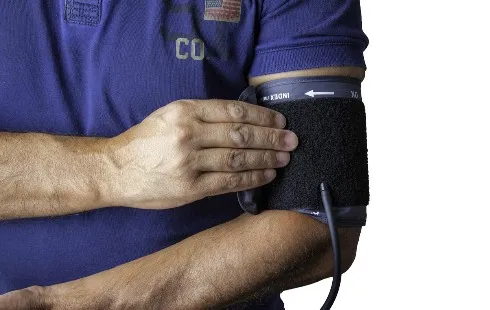
New to Germany? Avoid These Common Health Insurance Mistakes
Section: Health Insurance
Six more cases of the Omicron variant of coronavirus were confirmed in the United Kingdom on Monday, bringing the total to nine. More than 220 suspected cases are currently being investigated in the United Kingdom. Concern followed news that some of the new cases could not be linked to foreign travel, which experts say suggests a more advanced spread in the country. The government in Scotland, where all six new cases were reported, would not rule out a link to the recent climate summit in Glasgow (with more than 20,000 international guests), but described it as "not likely."
Edinburgh First Minister Nicola Sturgeon called on British Prime Minister Boris Johnson on Monday to further tighten travel rules. London had decided on Saturday that from this Tuesday, returnees must take a PCR test on the second day after arrival, regardless of their vaccination status, and remain in self-isolation until the result is negative. Sturgeon and Welsh First Minister Mark Drakeford are now calling for a ten-day quarantine with a second test on day eight. They also called on Prime Minister Boris Johnson to convene an emergency Cabinet meeting with representatives from Scotland, Wales and Northern Ireland. This was rejected by Downing Street. They were constantly coordinating with the regions in the country, which is why no other meeting was planned, a government spokesman said.
Beyond Scotland, experts also advised Monday that the safeguards announced over the weekend should be tightened and a return to homeworking. In addition, they said the mandatory masking of public transport and stores - also effective from this Tuesday - should be extended to more areas. The Department for Education in London made a "strong recommendation" Monday to return to wearing masks in schools as well. In London, health ministers from the G7 group of nations consulted Monday in an emergency meeting called at short notice. Earlier, G7 member Japan had imposed an entry ban on all persons without Japanese citizenship and permanent visas.
The U.K. National Immunization Commission recommended Monday that the booster program be extended to all adults and that the interval be shortened to three months. It said mRNA vaccines should be "preferred" for boosters. Previously, boosters were only offered to people over 40 years of age. In addition, the vaccination commission advised a second vaccination for 12- to 15-year-olds. Government officials stressed Monday that vaccination remains the best weapon in the fight against Corona, including the new variant from South Africa. More than 18 million Britons have already received the vaccination booster - about twice as many as in Germany. More than 80 percent of all Britons over the age of 12 are fully vaccinated. The number of new infections has hovered around an incidence of 400 for the past four months, with hospital admissions down 11 percent and Corona deaths down 17 percent in the past seven days.

Section: Health Insurance

Section: Health

Section: News

Section: Arts

Section: Arts

Section: Politics

Section: Politics

Section: News

Section: Politics

Section: Health Insurance
Health Insurance in Germany is compulsory and sometimes complicated, not to mention expensive. As an expat, you are required to navigate this landscape within weeks of arriving, so check our FAQ on PKV. For our guide on resources and access to agents who can give you a competitive quote, try our PKV Cost comparison tool.
Germany is famous for its medical expertise and extensive number of hospitals and clinics. See this comprehensive directory of hospitals and clinics across the country, complete with links to their websites, addresses, contact info, and specializations/services.
Offene Wunde is a documentary theater piece about the attack at the Olympia Einkaufszentrum (OEZ) by Tunay Önder and Christine Umpfenbach. On July 22, 2016, a perpetrator motivated by racism killed nine young people from Munich: Armela, Can, Dijamant, Guiliano, Hüseyin, Roberto, Sabine, Selçuk,...



No comments yet. Be the first to comment!